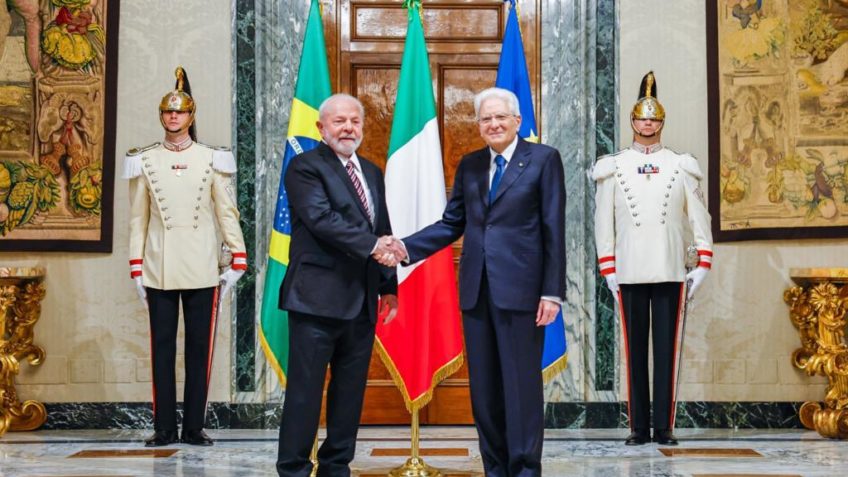Cursos de gradua??o, exames, reconhecimento de paternidade e mais: saiba onde tem servi?os gratuitos no Grande Recife
The_lost_art_of_hitchhiking_What_we_can_still_learn_from_travels_most_radical_mode.txt
The best roulette applost art of hitchhiking: What we can still learn from travel's most radical mode?9 August 2025ShareSaveRiley FarrellShareSaveGetty Images(Credit: Getty Images)Long dismissed as dangerous, hitchhiking is being rediscovered by a new generation of travellers seeking connection, adventure and a low-carbon way to see the world.In 2022, travellers Alexandra Menz and Bernhard Endlicher were standing on the side of the road under the blazing sun near the Turkish-Syrian border, trying to make it to Mardin. It was too hot to walk, so they mustered their friendliest smiles and stuck their thumbs out to hitchhike. A car soon screeched to a halt, and inside was a bride wearing a white dress and a groom in a tuxedo."Hop in! We're going to our wedding," the couple said. An hour later, Menz and Endlicher found themselves in the Kurdish city of Nusaybin as guests at the couple's nuptials. Welcome to a day in the itinerant lives of Menz and Endlicher, an Austrian duo who have documented their 4,000 car rides with strangers in more than 65 countries on social media. Lured by its low carbon footprint and high chance at authentic human connection, the couple have chosen hitchhiking as their literal and figurative vehicle to travel.Alexandra Menz & Bernhard EndlicherMenz and Endlicher were invited to the wedding of a couple who gave them a lift (Credit: Alexandra Menz & Bernhard Endlicher)"Hitchhiking is not a thing of the past; it's a thing for the future," Menz tells the BBC.Still, the two 25-year-olds realise that not everyone shares this sentiment. While hitchhiking was once commonplace around the world, it was later stigmatised as unsafe in the US and parts of Europe. And while it's a cheap way to travel, it's also a freedom few can afford.For many people around the world in remote, rural areas, hitchhiking isn't a choice; it's a lifeline – the only way to reach work, school or the next town where buses are scarce. But for young travellers like Menz, Endlicher and a new generation of adventure-seekers who have time, safety nets and passports that open borders, hitchhiking offers a budget?friendly, eco-conscious way to move through the world, meeting strangers along the way.The history of hitchhikingHitchhiking's roots stretch back to the early 20th Century. By the 1930s, hitchhiking in the US wasn't just mainstream, but necessary, as high unemployment during the Great Depression forced many Americans to hitch rides and travel long distances in cars or freight trains in search of scarcely available jobs. When World War Two began, hitchhiking became a patriotic duty to conserve resources for the war effort, as seen in an antique US poster stating: "If you ride alone, you ride with Hitler."But by the 1950s, fear took hold. The FBI branded hitchhiking a "menace", with director J. Edgar Hoover framing it as a safety and national security risk, as he believed that undercover agents could use it to slip through the country undetected. According to Jack Reid, author of the book Roadside Americans, which traces the practice's history in the US, Hoover instilled a campaign of fear in the US consciousness that largely still remains. A few decades later, coverage of high-profile crimes from US serial killer Edmund Kemper and Australian "backpacker killer" Ivan Milat – both of whom selected victims by offering rides to hitchhikers – cemented its dangerous reputation.AlamyHitchhiking was actively encouraged by many communist nations in the 20th Century (Credit: Alamy)Elsewhere, the culture endured. Communist Poland and the USSR offered drivers vouchers to pick up hitchhikers; while in Cuba, "hacer botella" (hitchhiking) became essential during 1990s fuel shortages. And Ireland's friendly countryside was immortalised in Tony Hawks' best-selling travel memoir Round Ireland with a Fridge.By the 2000s, rising car ownership and developed highway systems had pushed hitchhiking to the fringes – or so it seemed.A new generation of hitchhikersIf social media is any indicator, the nearly half a million Instagram posts tagged #hitchhiking suggests the retro travel method is now returning. Digital creator Courtney Allan, known as @hitchhikercourtney to her more than 75,000 followers, is a 26-year-old Torontonian who embarks on months-long adventures across multiple continents, and is currently in the middle of hitching from Guangzhou, China, to Cape Town, South Africa. "Hitchhiking is an easy way to welcome the world into your life," Allan tells the BBC, mid-ride from Tbilisi, Georgia.Allan is often asked about the risks of hitchhiking as a woman and says her "only precaution" is her gut instinct. By looking for signs like a child safety seat or a wedding ring, she says she can usually gauge a driver within 15 seconds.@hitchhikercourtneyCourtney Allan is currently hitchhiking from China to South Africa (Credit: @hitchhikercourtney)"Of course, I've had uncomfortable moments with men, but I've never been in a truly dangerous situation," Allan says. "I'm passionate about showing women that the world is beautiful and safe; the world is all these things for you that it is for men."Did you know…?That Hilary Bradt, the founder of the world's largest indie guidebook publisher, Bradt Guides, hitchhiked across the Middle East for three months in her 20s and still hitches today in her 80s? Read her story here.Lorenza D'Agostino, who is 27 and has hitchhiked more than 25,000km over the last decade across South America and Europe, also doesn't believe that solo hitchhiking is necessarily unsafe for women. She says she has only encountered two uncomfortable moments."At first, I was scared because of what people say about solo women travellers," she explains. "In this day and age, it's normal, people are more open-minded."While most experts agree that hitchhiking declined after the 1970s, today it still persists across parts of southern Africa (where it's not always free), as well as in Patagonia and rural Europe. In areas of Germany, Austria, Switzerland and Belgium with limited public transportation, for instance, ride-sharing benches have popped up in the last decade. In the US, five states now explicitly ban hitchhiking, though it curiously remains very common on St John in the US Virgin Islands. And in Britain, hitching still lingers on in corners of Scotland and Wales.Lorenza D'AgostinoD'Agostino has hitchhiked more than 25,000km across South America and Europe (Credit: Lorenza D'Agostino)Hitchhiking isn't usually efficient, but, to hitchhikers, detours are part of the fun. In Patagonia, D'Agostino set out for the Argentine mountain village of El Chaltén from a petrol station, catching a ride along Argentina's lengthy Ruta 40 before being dropped in the middle of nowhere. With little other choice, she stuck her thumb out."While I was hitchhiking, I was like, 'I trust humanity'," she says. Her next ride didn't lead her to El Chaltén, but to a remote Mapuche home, where she was welcomed into a commemoration for a late elder. "You discover there are many beautiful hearts out there," she says.More like this:? In the steps of history's forgotten female explorers? The woman who walked around the world? The origin of the world's first travel blogAdam Renak, a hitchhiker from the UK, insists the practice isn't obsolete. Twenty years after hitchhikers launched Hitchwiki as a global guide to hitching by hitchhikers, Renak is co-developing a new app aimed at 22- to 36-year-old travellers, utilising shared data to enhance safety and highlight better hitching spots.Renak says he first hitchhiked three years ago in Australia. He was stranded at a service station trying to get to Far North Queensland. Just as hope was fading, a dog scampered up to him, followed by a woman in a van who drove him two hours to his destination while fondly reminiscing about her own past hitchhiking escapades. Since then, he says he "looks for any opportunities he can" to hitch – and has done so in New Zealand and Norway.Alexandra Menz & Bernhard EndlicherMenz and Endlicher have hitchhiked 4,000 times across more than 65 countries (Credit: Alexandra Menz & Bernhard Endlicher)"Over the last few years, we're seeing this trend towards more social, ethical and economic travel, which hitchhiking ticks all the boxes for," he tells the BBC. In Renak's view, it's the "greenest way to travel".Did you know…?Hitchhiking is illegal in five US states (New York, Nevada, New Jersey, Pennsylvania and Utah), as well as in Singapore and the Australian states of Queensland and Victoria. In New Zealand it's strongly discouraged. Italy, France and Spain prohibit it on their highways, and Canada imposes restrictions, particularly on highways in British Columbia and Ontario.According to Reid, hitchhiking may also be benefitting from an internet-fuelled revival. As ride-sharing apps like Uber, Lyft and Liftshare have cropped up, hopping into a car with a complete stranger may seem less scary for travellers than it once did. "[These] commodified forms of hitchhiking could have softened people up to the idea of hitchhiking," says Reid. "You still don't know anything about this person, but get in the car with them."More analog and regionally specific versions of hitchhiking have resurfaced as well. "Slugging," a commuter carpool system in the Washington DC area, was spurred by post-pandemic return-to-office mandates. Since the mid-2010s, ride-sharing benches have popped up in areas with limited access to public transportation throughout Germany, Austria, Switzerland and Belgium, aimed at offering citizens eco-friendly mobility.Whatever the reason, Reid maintains that traditional hitching is seeing a slow resurgence. "It's a populist moment. People are having a hard time," Reid says. "Some people are more likely to see past anti-hitchhiking [anxiety] and just say, 'I want to get here. I don't have the money to do it, and we'll see what happens.'"@hitchhikercourtneyMany hitchhikers believe that the practice reinforces the importance of helping others (Credit: @hitchhikercourtney)Still, Menz and Endlicher say they are careful not to romanticise the practice. They're also candid about the privilege that makes their hitchhiking journeys feasible. A few years into their travels and currently couch-surfing in Moscow, the couple remains steadfast in their belief that hitchhiking isn't just a relic of the past, but a thrill more people ought to experience."Hitchhiking creates this positive feedback spiral," says Endlicher. "Now that it appears we're more divided than ever, hitchhiking could make a difference. No matter where you're from, you can help a random stranger, and maybe one day, another stranger will help when you are in need."--If you liked this story, sign up for The Essential List newsletter – a handpicked selection of features, videos and can't-miss news, delivered to your inbox twice a week. For more Travel stories from the BBC, follow us on Facebook and Instagram. Road TripsFeatures















